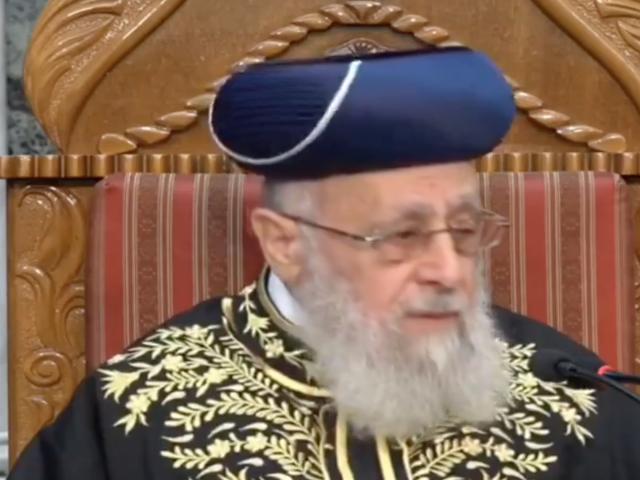In a recent sermon, Sephardi Chief Rabbi Yitzhak Yosef sparked controversy by attributing Israel's resilience against ongoing rocket attacks to the prayers of yeshiva students rather than the efforts of the military. Since the October 7 Hamas assault, Rabbi Yosef pointed out, over 13,000 missiles have targeted Israel. He emphasized the miraculous survival of the nation, crediting the devout Torah and yeshiva students whose studies, he believes, shield the entire country, including its soldiers.
This assertion comes amid heated discussions on the mandatory military service exemptions for yeshiva students. The rabbi argued last month that such conscription could drive the ultra-Orthodox community out of Israel, a stance that has faced legal challenges. Israel's High Court has repeatedly emphasized that blanket exemptions disrupt the principle of equality.
Chief Sephardic Rabbi Yitzhak Yosef:
— Lazar Berman (@Lazar_Berman) April 27, 2024
“13,000 missiles were lobbed at our country, thank god for the miracles and wonders we had. Thanks to what? Thanks to the IDF Chief of Staff? Thanks to whom? Thanks to the Torah students and Yeshiva students, who sit and learn the Torah." https://t.co/mXry8ng1nH
Rabbi Yosef's comments have not only reignited debates over military service but have also led to a backlash regarding his upcoming receipt of the prestigious Israel Prize. Critics, including Opposition Leader Yair Lapid and Labor MK Gilad Kariv, have sarcastically suggested that if the rabbi truly believes in the protective power of prayer over military action, perhaps he would forgo physical defenses like the Iron Dome.
The discourse extends to a broader critique of the October 7 incident, a day marked by a horrific attack from Hamas, resulting in significant Israeli casualties and kidnappings. The event is widely regarded as a major security oversight, with several IDF officials acknowledging their accountability.
Chief Rabbi of Israel Yitzhak Yosef said "the miracle of protecting Israelis 🇮🇱 from 16,000 missiles fired at Israel (from Iran 🇮🇷) is thanks to Haredi yeshiva religious students and their prayers, not thanks to the army" https://t.co/qISUG9HBTr
— Saad Abedine (@SaadAbedine) April 28, 2024
Amidst these tensions, figures like Rabbi David Stav of the Tzohar organization have condemned Rabbi Yosef's stance, advocating for a balance between religious study and fulfilling national defense duties. Stav criticizes the chief rabbi's approach as disrespectful and undermining to those actively defending the nation, highlighting the ongoing struggle within Israeli society to reconcile religious convictions with civic responsibilities.


